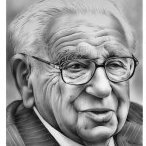
Arafaat
Nomads-
Content Count
1,023 -
Joined
-
Last visited
-
Days Won
56
Content Type
Profiles
Forums
Calendar
Everything posted by Arafaat
-
Ina Somaliland ku aaminisid demoqraadiyad la garay, laakinse ma waxa leedahay Somalilanderskii Mogadishu joogay macaa wee dhamaan reer koonfur?
-
I thought this war was about Russia trying to prevent Ukraine from joining NATO? So your saying Russia will be defeated in this?
-
Xaaji, marka Afrikaanta la diliyo ma sheegaan timaha jurada leh, saas ayee ku noqonisaa ‘double standard’ ama cunsurnimo.
-
it’s not that simple, even if GDP is increasing does not mean that it leads to more opportunities for those unemployed or higher wages for those employed. One the many factors pushing young people in to migrating is the increasing inequality between those living in poverty and wealth. And often in large urban cities these two are living in close proximity, making the increasing levels of inequality the more glaring and pushing even more youngsters to seek their fortunes elsewhere. And economics is only one factor, another important factor is lack of hope and lack of leadership that instills hope (Rajo) and inspires to imagine and work for a better future, things can start looking very bleak.
-
You are wrong. Holding elections should be done according to precedence in law, as Galbeedi has pointed out. Following existing precedence is justified as it provided predictability, stability, fairness, and efficiency in the law, so that people know what their rights are in particular circumstances, and will not be based on how one ‘feels’ or will be a matter of ‘opinions’.
-
Nothing wrong to seek a balanced working relationship with competing Gulf countries, much healthier then choosing sides between feuding parties.
- 1 reply
-
- 1
-

-
Galbeedi, if you intention is to promote investment in Zeila port then you are going about it the wrong way.
-
Upgrading its consular office to an Embassy would mean recognition, you do realise that.
-
Chicago is US most corrupt City “There are real consequences to corruption. Ferguson says you can draw a straight line from the culture of corruption in Chicago and Illinois state politics to some of the city's most pressing issues.It's unquestionably holding back the state. It is a huge inhibiting factor to the development of business, to people coming to the community, to people building businesses in the community that expand the tax base, that expand opportunity, that's necessary in order to sort of cut into those forces that end up resulting in the cycle of violence and the continuation of the cycle of segregation, Ferguson says”
-
Maxaa ka khaldamay Dimoqraadiyaynta Puntland? WWW.HIIRAAN.COM Geedi socodka Puntland ay rabto inay uga guurto nidaamkii qabaliga ku salaysna una hayaanto doorashada qof iyo cod iyo...
-
??? Egypt, Sudan, Tunisia? First of all, Your analysis couldn’t be more wrong. The Middle-East conflict isn’t about religion, it’s about power. Second, stick to the topic of the discussion. The double standards in media coverage and international attention given to the conflicts in Ethiopia and Yemen.
-
Handball and dodgeball are two different games with different set of rules, even though both are ball, contact and team sports. Nevertheless it can be played on the same field or played within the same sports club. That said, Galbeedi how does your neck of the wood village team fare playing ball in Xamar.
-
Farmaajo biggest achievement is that he freed Somalia’s politics from monopolisation by particular clan lineages, and made a lot of people feel included again and feel their voices count. For that for that he should be awarded.
-
Nobody is supporting the IC agenda, but where is the government and its leader whose responsibility it’s to pursue agenda’s benefitting the Somali’s?
-
Somalia has time and again agreed to every single UN motion for the last 15 years, in no point of time did one use the platform offered to come up with indigenous solutions and lobby for support, except uttering few unprepared empty words which the IC seems to entertain. Even if it’s true what you said, there are numerous countries in the SC that are sympathetic towards any real solutions, if one would actually come up with constructive plans. Somalia doesn’t even have real diplomats and technical experts. One appoints every few years a complete new cadre of inexperienced minions on all levels. Do you really think to influence the international community with few tweets and empty populistic words, that might work with the poor domestic crowds, but don’t expect to punch a difference on int level.
-
This is what happens when you let crazies ran the asylum
Arafaat replied to Che -Guevara's topic in Politics
How long has this terminal been operational, and why threaten to closing it if nothing will change. Lol -
Both EU and AMISOM have been there for nearly 15 years, UN mandates are renewed every single year for both missions. The government had years the time to come up with any concrete counter proposals and negotiate how Somalia exactly wants to reform or refocus AMISOM and EU mission, which they never have. This tactic of playing on electoral popularism and fake patriotism is getting old by now, what counts are concrete political solutions and actions.
-
Don’t focus on personalities, and playing the nationalistic cards but try to counter arguments. Matt Brydens last article on Somalia was quite interesting and presented a unique perspective, and have not read a single piece presenting counter arguments.
-
Experience seems to be overrated in the age of social media like hits.
-
Pertinent Issues on the War in Tigray, by Gen. Tsadkan Gebretensae
Arafaat replied to Che -Guevara's topic in Politics
-
Popular Contributors




